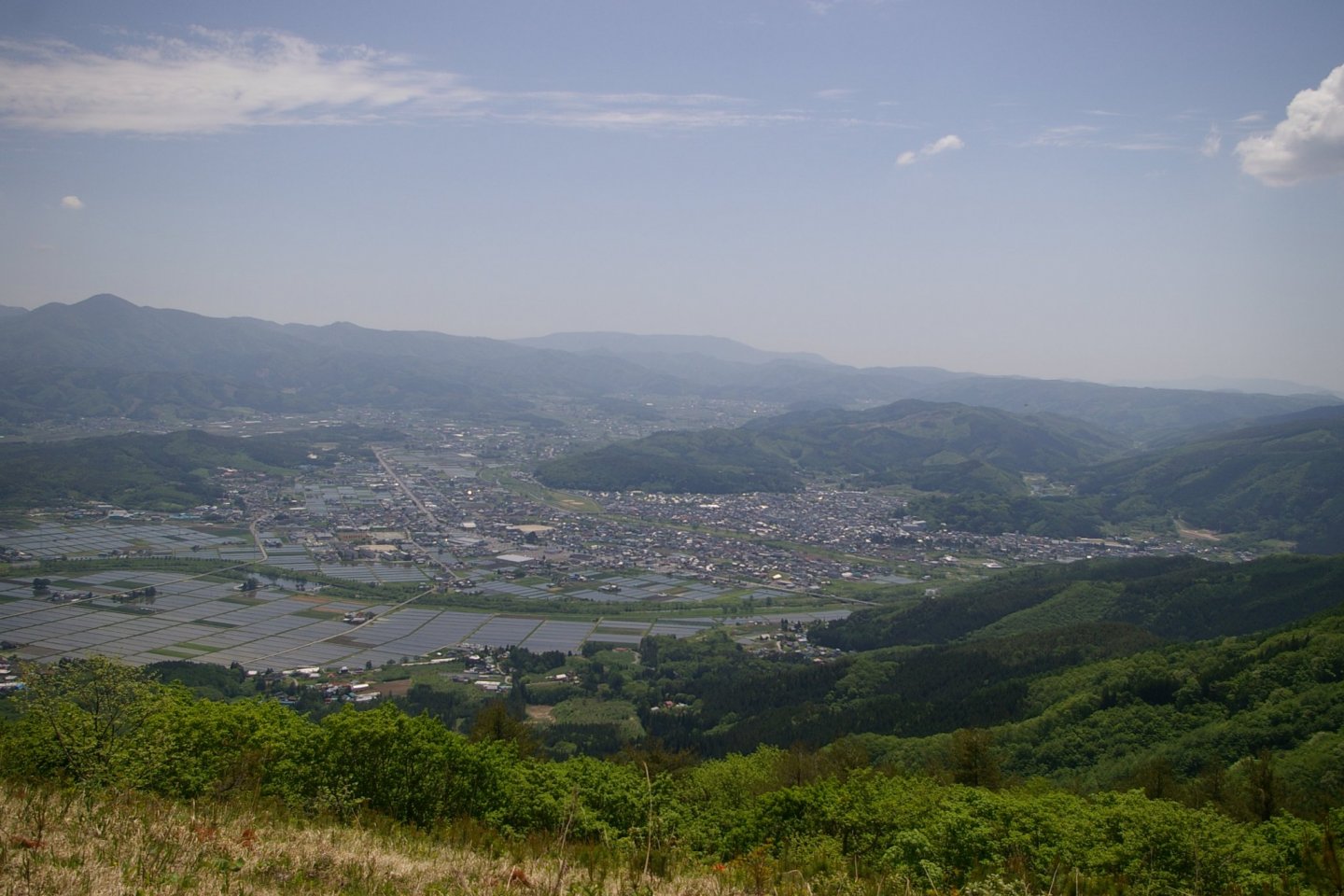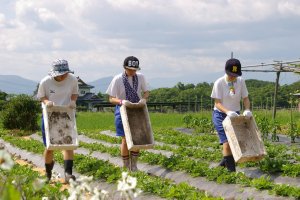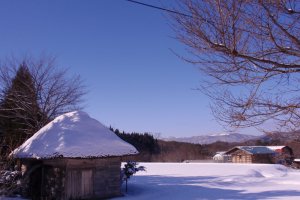Say goodbye to the urban sprawl of modern Japan. Rural Japan is still alive and well—and in Tono, a small town in the rustic prefecture of Iwate, it’s intimately connected to nature and local history. Here, civilization dates back over two millennia and still maintains an antiquated atmosphere. You’ll find thatched-roof houses in this natural, agrarian setting built on the floodplain of the Sarugaishi River and surrounded by a circle of mountains. This is the “City of Folklore” where traditional culture lives on among its simply idyllic landscapes ripe with legends and old-time country life.

Highlights of Tono
Tono, being within a two-hour drive of Hiraizumi (a World Heritage Site of temples and gardens), Genbikei and Geibikei gorges, and the striking beach of Jodogahama, makes for a great base to explore Iwate or simply relax among the rice fields buzzing with dragonflies and filled with the rhythmic sounds of the countryside on quiet summer nights.
Specialty cuisine of this agricultural region includes sake, especially a traditional homemade sake known as doburoku, local meats, and jingisukan (i.e. “Genghis Khan”), a mutton-based barbecue meal. Then there’s hittsumi, a hotpot feast with wheat dumplings. Try washing it down with a local microbrew—there’s even one beer made with another local specialty: wasabi.

Among the sightseeing highlights of a visit to Tono are the magariya, L-shaped houses from the 18th and 19th centuries. See them at Tono Furusato Village and learn more of the region’s history at the Tono Municipal Museum. Outdoors, there’s a scenic pool of water known as Kappabuchi, where kappa are said to roam. These legendary water sprites color some of the folklore this town is famous for. Not far from the city center, the Mt. Takashimizu Observatory provides an overview of the town and, in the early mornings from summer to autumn, a view down onto a sea of clouds known as unkai. For a more challenging hiking adventure, Mt. Hayachine calls out with its gorgeous wildflowers. If your preference is something livelier and more interactive, Tono is full of festivals, such as the Tono Folktale Festival in February; the Sakura (cherry blossom) Festival in May; the Tanabata Festival, Jingisukan Marathon, and Hops Festival in August; and the Tono Festival in September. You can watch kagura, a traditional Shinto dance, throughout the year at Hayachine Shrine.
Experience a Tono farmstay
But if you like the scenery and atmosphere of this area and want to breathe the rural life a little more deeply, doing a farmstay can be an unforgettable experience. Spend the night—or spend a month—on a family farm Tono-style. That means it’s free, but you earn your room and board by working alongside the family in the fields and in the household. With this kind of extended stay, you’ll have the time to make real connections with your host family and share in their lifestyle.

Typical of many of the family farms, Kikuchi-san’s place can host up to four farmhands at a time and recommends a stay of at least a week. He has flower and vegetable fields which need tending, rice paddies to maintain, and horses and cows to take care of. Down the road, Okudera-san likewise takes up to four people. On this farm, you can work with blueberries, asparagus, rice fields, cattle, and birds. His family has a Japanese-style room in the house where you can stay.
Besides the family farms, Tono has larger-scale guesthouses on farms. At the Milk-Inn, try your hand at milking cows or gathering vegetables or mushrooms. They even brew their own doburoku sake. Mizuki is another farmhouse. It’s known for its picturesque views and excellent meals prepared with local vegetables. Not only can you work out in the fields here, but you can also learn handicrafts, such as making straw slippers. Down the road is Sozukuri-tei, a guesthouse that gives you a chance to experience a variety of farm traditions. Try light field work with peanuts, flowers, and vegetables. Or learn the complex-yet-simple beauty of wearing a kimono and go for a scenic afternoon stroll. They also have seasonal cooking, and handicrafts. The Omori-ke farm guesthouse grows rice, tomatoes, and other vegetables out in the field, but here you can have the satisfaction of putting them together in your own pizza or trying your hand at some local recipes. Besides the chance to work with food, they have ikkanbari (lacquered paper-mache) to play with if you are visiting in winter. Then, there’s ice cream to be made and eaten with seasonal fruits and vegetables.
The experiences in Tono are ones you can’t get from just visiting the Japanese countryside. Here, it’s more than just a beautiful rural town with good food, places to visit, and fun activities. Doing a farmstay gives you an easier way to connect with the culture, history—and people who you’ll make memories with. Plus you can book your preferred farm experience online in English here.

































